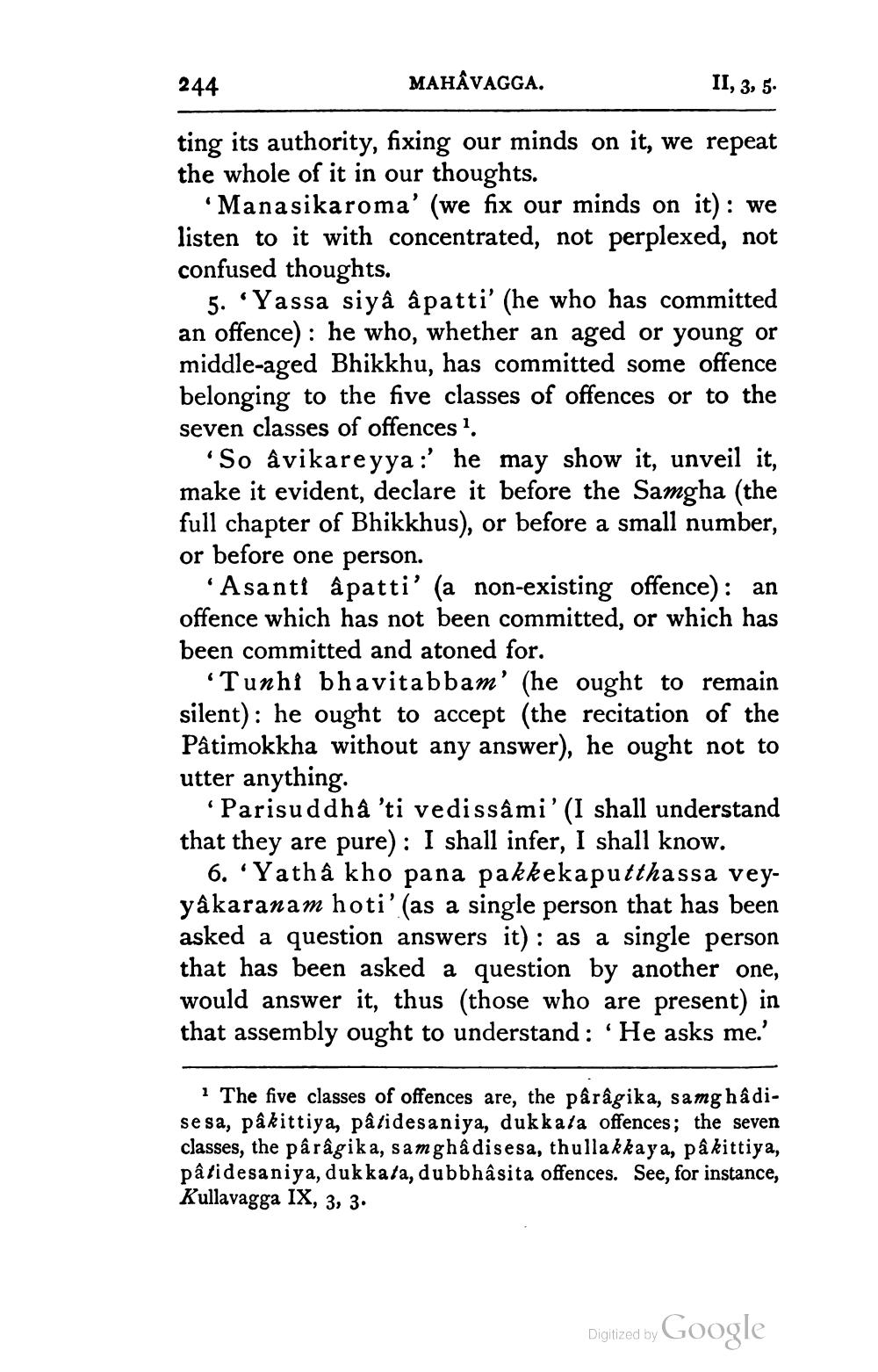________________
244
MAHÂVAGGA.
II, 3, 5.
ting its authority, fixing our minds on it, we repeat the whole of it in our thoughts.
Manasikaroma' (we fix our minds on it): we listen to it with concentrated, not perplexed, not confused thoughts.
5. *Yassa siyâ âpatti' (he who has committed an offence): he who, whether an aged or young or middle-aged Bhikkhu, has committed some offence belonging to the five classes of offences or to the seven classes of offences".
So âvikareyya :' he may show it, unveil it, make it evident, declare it before the Samgha (the full chapter of Bhikkhus), or before a small number, or before one person.
*Asanti âpatti' (a non-existing offence): an offence which has not been committed, or which has been committed and atoned for.
'Tunhi bhavitabbam' (he ought to remain silent): he ought to accept the recitation of the Pâtimokkha without any answer), he ought not to utter anything.
Parisuddha 'ti vedissâmi' (I shall understand that they are pure) : I shall infer, I shall know.
6. “Yath â kho pana pakkekaputthassa veyyâkaranam hoti’ (as a single person that has been asked a question answers it): as a single person that has been asked a question by another one, would answer it, thus (those who are present) in that assembly ought to understand: 'He asks me.'
1 The five classes of offences are, the pârâgika, samg hâdisesa, pâkittiya, pâtidesaniya, duk kata offences; the seven classes, the pârâgika, samghâdisesa, thullakkaya, pâkittiya, pâtidesaniya, dukkata, dubbhâsita offences. See, for instance, Kullavagga IX, 3, 3.
Digitized by Google




